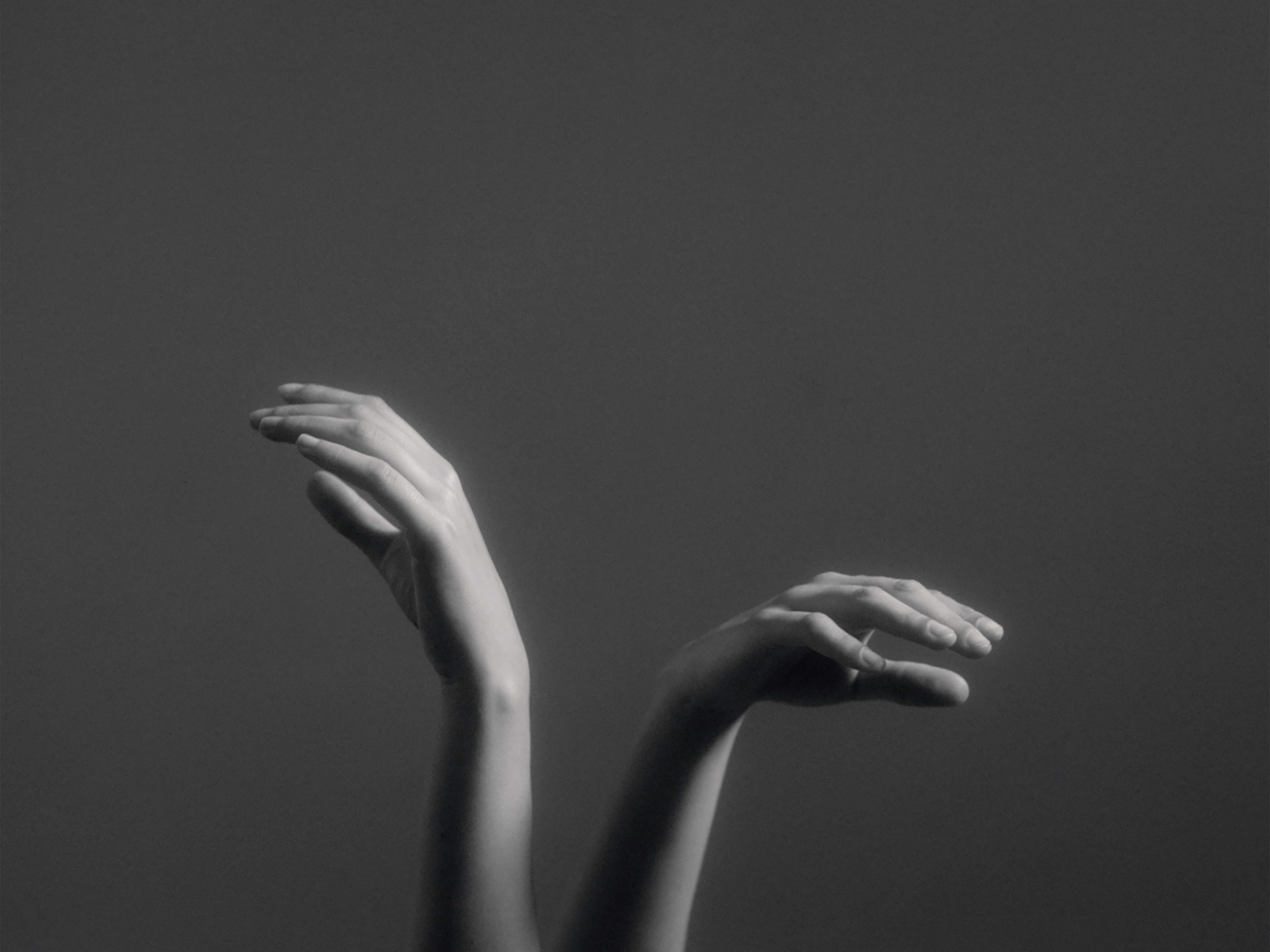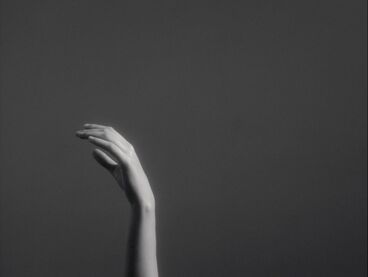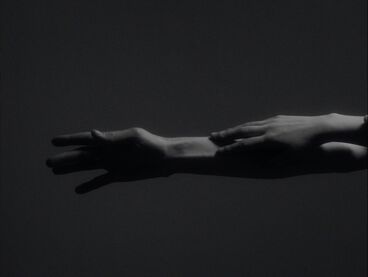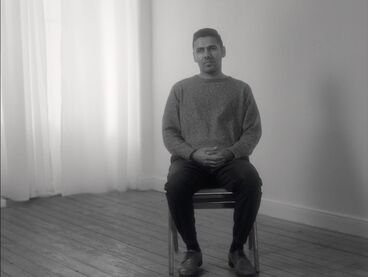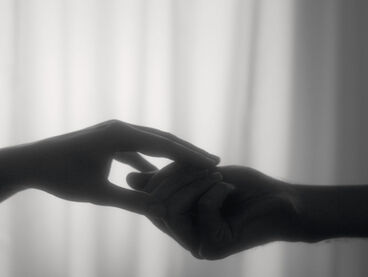MOOZ – audiovisual arts collection
Euphrat
“We grab two spray cans and write on the wall: ‘For a life in freedom! The revolution is our right!’”
Words against injustice.
So begin the recollections spoken by a male voice telling of a time full of hope that has since passed.
“It’s a great feeling to see these words against injustice.”
Backlit black-and-white images, gentle movements, hands, arms, a curtain (director of photography: Martin Paret). Touches tender, gentle, peaceful. We do not know to whom the hands and arms belong. We watch how they touch, touches and movements that express a longing. A longing for freedom?
But the story, the account, the narration speaks of other things: soldiers, betrayal, cold, escape, thirst. The memories of millions of people are bombarded.
Arms and hands touch each other gently.
Image and sound contradict and yet merge fully with each other, pulling the viewers along into the past and into these memories, to innocent times. Longing.
Toward the inviolability of human dignity. But the dignity of human beings is not inviolable. It is vulnerable, it is fragile.
“My memories carry me to a distant past. How good the bread used to smell that my mother would bring us … these mornings, their calm, their freshness. I miss the conversations with my mother.”
In the film Euphrat (Euphrates) by Jelena Ilic (direction, screenplay, and editing) we follow the life of Jabbar Abdullah. We follow his escape from Aleppo, Syria—from the Euphrates to the Rhine. Soon the voice gets a face, a body. A person gazes back at us as viewers. Jabbar Abdullah tells us a story and shares his memories.
“I like Cologne. I’m at the Euphrates. I’m at the Rhine. I merge with it. I live here and want to continue living here.”
There it is again—hope. And Jelena Ilic achieves this in three minutes and 39 seconds, through the intensive interplay of the layers of image and sound, in the way Jabbar Abdullah’s story of his escape and his hope in his home country becomes our story, becomes the story of thousands of people, or something close to this. Nothing is past and yet everything is memory.
From the disappearance and the merging with water and the current, for only therein lies hope: the dignity of human beings is inviolable.
The film originated from Prof. Lars Büchel’s and Gerrit Lucas’s seminar “Social Spot I.”
Jelena Ilic lives and works as a director in Cologne, where she studied at the Academy of Media Arts until 2021. Her film Euphrat is part of the AG Kurzfilm catalogue, has been screened at numerous film festivals, and has been recognized with awards nationally and internationally. She is a mentee in the Into The Wild Mentoring program and a grant recipient of the Filmbüro NW. Her thesis film Kein Etwas was funded by the BKM.
At present, she is working on her debut film Eine Krankheit wie ein Gedicht, which is co-produced by the ZDF Kleines Fernsehspiel and funded by the Kuratorium deutscher Film, the BKM, MDM, as well as the Film- und Medienstiftung NRW. In parallel, she is developing her first feature-length film Mönet (AT) in collaboration with Cécil Joyce Röski.



